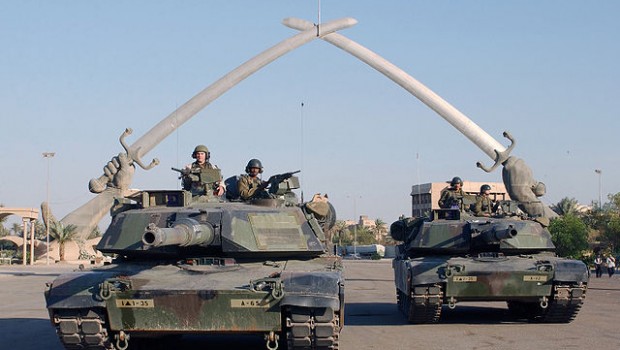The 21st century has seen a new generation of foreign policy voices disillusioned with the rhetoric and idealism that they grew up around. Realist Review asked some of our writers why they have found realism to be an effective way of explaining the world, citing their lived experience and intellectual growth. Here is what they had to say.

Simeone Miller: “I became a realist because in my view, reckless U.S. military adventurism has been the greatest threat to national security. As most data shows, it has produced a greater climate of violent extremist radicalization that emboldens the emergence of international and domestic terrorism. It is something I saw firsthand when fourteen people were killed in a terrorist attack in San Bernardino, my home. Displays of U.S. military might in the Global South did not protect these people or any other set of individuals killed in terrorist attacks, both in and outside of the U.S. since 9/11. If we are to do right by the victims, we must change the way our country engages with the world. Anyone who thinks otherwise has yet to visit the memorial to the San Bernardino Fourteen on the California State University, San Bernardino campus.”

Joseph Brennan: “I’m a realist mainly because the effects of U.S. influence in Latin America has given way for several risings of U.S.-back authoritarian regimes and terrorist organizations (especially because many leaders victim to the coups that have been influenced by the United States were not threats), both of which have personally affected my family. I see realism as a spectrum. To put it another way: liberal yet restrained Western hegemony by advocating for a balanced and thoughtful exercise of power by the U.S. and avoiding excessive intervention.”

Joshua Smith: “I became a realist because I realized when it comes down to it states are all about self preservation. During the pandemic many states violated alliance rules and held vaccines all for themselves. As much as I like to think that institutions matter and are worth the effort to negotiate things diplomatically, the end result as we have seen more often is that states ignore the rulings when they think it is detrimental to their goals.”

Matthew Bryant: “I became a realist in 2014 after reading John Mearsheimer’s “Why the Ukraine Crisis is the West’s Fault” – at the time I had fairly unformed convictions on foreign policy. The Crimean annexation and subsequent events allowed me to start looking at foreign policy in a way that did not see America’s hegemonic status as obvious or inevitable. Beyond my preconceptions was a history of power relations and rational actors that reframed my understanding of the world. I began to see the wide interplay of power and logic that makes the realist position align so well with – well – reality.”

Corey Shiver: “During my first year in college, I discovered a passion for international affairs and foreign policy. Based on conversations with my mentors and peers, I began to understand that most modern day problems are rooted in historical events. It became apparent to me that the solutions of today can be generated through an understanding of yesterday’s mistakes and lessons learned. Realism prioritizes this method of using history to understand current issues. I have used this realist perspective to conceptualize my ideas, beliefs, and understanding of the modern problems that face America today.”

Julian Fisher: “At the John Quincy Adams Society’s summer conference, we war-gamed tensions between the US and China. The game ended with both countries on the precipice of war, however post-game discussions between members of different groups revealed that this was the result of a few missteps that seemed easily avoidable in hindsight. The outcome of this exercise taught me how fragile diplomacy is and how rash decisions by just a handful of actors can lead towards unnecessary escalations. I felt myself and many others walk away from the wargame with a deeper appreciation for realism as a way of effectively communicating intentions and red lines.”

Brad Settelmeyer: “I became a realist because, starting while obtaining my masters degree, I came to understand the importance of restraint in America’s foreign policy, especially in regards to non-peripheral issues (Iraq and Afghanistan case in point). Given that my masters studies focused on humanitarian intervention, I saw just how dangerous and costly it when states believed they could build a functioning government in a foreign land. Seeing such disasters, I realized how important America’s prudence was concerning its overall strategic goals and global standing. That is why I am a realist.”


Leave a Reply